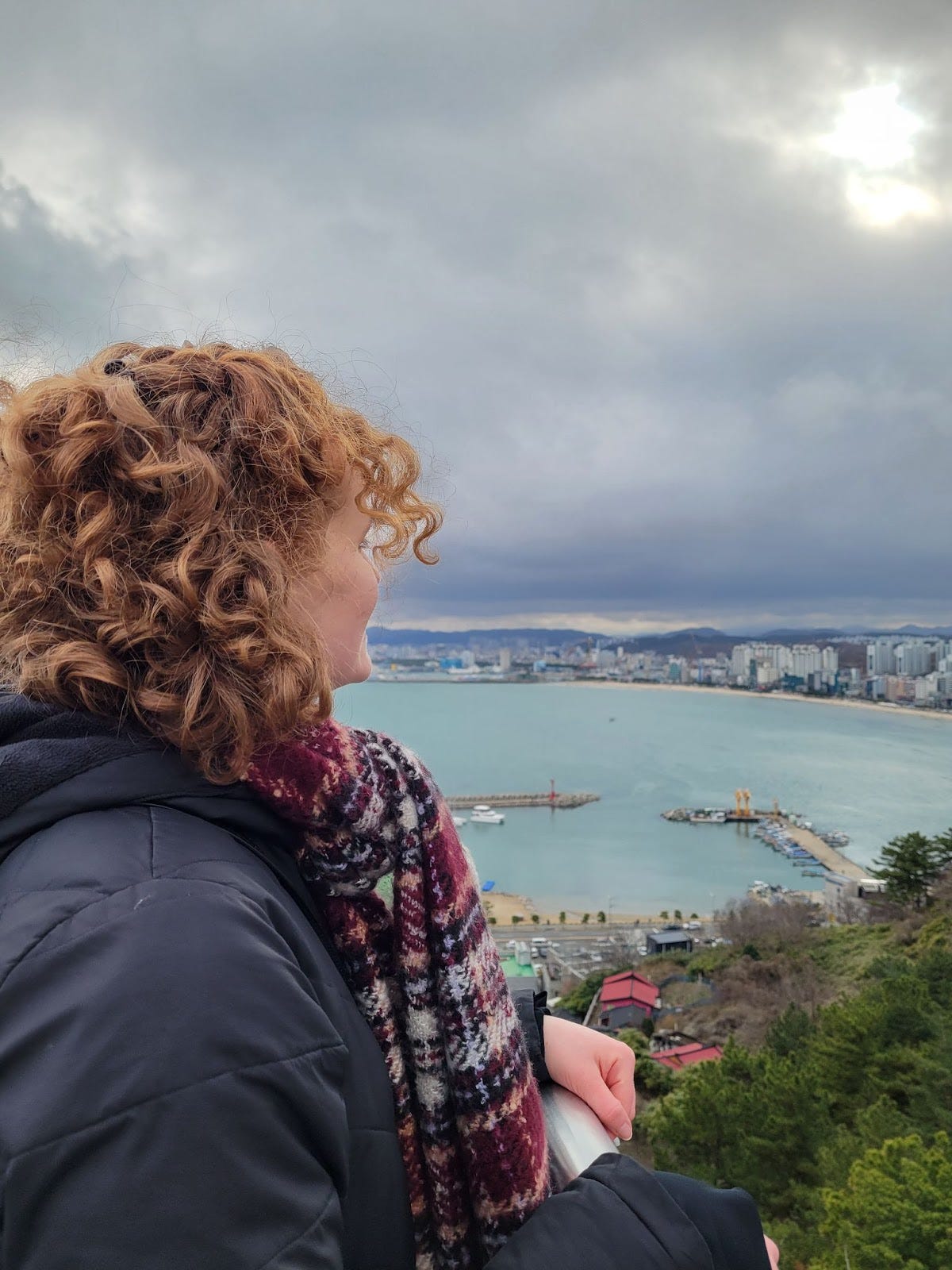After completing the rigorous application and over a year of waiting, I started my Fulbright English Teaching Assistant (ETA) grant in South Korea in January 2024.
With beginner-level Korean, teaching 600 3rd-6th graders was challenging. Teaching had its good days when I could see the a-ha moments of understanding in students. And its bad days, like when a frustrated student told me, “In Korea, we speak Korean.” On top of the challenges at work, because of the language barrier, tasks that were simple in the U.S. like going to the post office or to the pharmacy came with significant hurdles.
Despite the language barrier, or perhaps because of the language barrier, I had the chance to see the best in people. Korean teachers would go out of their way to ask me how I was doing, despite their expressed lack of comfort speaking English. One time, on the way back from a trip to visit another American teacher in a neighboring city, I stopped in a bus restroom which didn’t have any toilet paper (common in more rural areas— my mistake). As I was looking through the stalls to see if they were all empty, an older Korean woman on the phone simply held out her hand with a packet of tissues.
In addition to the kindness I saw from Koreans, I built close relationships with my fellow ETAs over the 6-week orientation that lasted us throughout the year. Advice needed on dealing with challenging students or panic over how to pay the electricity bill, our group chat was a much-needed rock. When my beloved cat back home unexpectedly passed away, the other ETAs in my city ordered me food when I wanted to be alone and were there to hang out with me when I needed a shoulder to cry on.
During my grant year, I was invited to lead a book club for Korean teachers so they could study English. This bi-weekly book club became my constant— something I looked forward to between lesson planning and the after-work-bedroom-rotting. After the last meeting of our book club, one of the teachers and I were walking home together, talking about my year in Korea. I told her that I was nervous while talking to Koreans because I felt like I was representing the U.S. and I didn’t want to give anyone a bad impression of Americans because of me.
“Really?” She said, “We are nervous, too. We don’t want you to think bad about Korea.”
The universal language of kindness extends all language barriers. My year made me reflect more on how I interact with others. Do I go out of my way to be kind to strangers? Would I offer support to a grieving friend? Or am I the kind of person that avoids things that may make me feel uncomfortable?
In my goodbye speech to my students, I told them:
“You and I may seem different, because I am American and you are Korean. But I have grown to love you regardless. I may brush my teeth 2 times a day instead of 3; eat my chicken wings with dirty hands instead of chopsticks or gloves; and I might eat my grapes without seeds and with the skin on instead of seeded and skinless, but we have learned a lot from each other, regardless, right? I hope, in the future, when you meet another American, or a foreigner, or a friend who is just a little weird, you will be kind to them even if you are a little different.”
Inspired by my year in Korea, I have not returned to my previous job as a librarian. Instead, I have decided to pursue a career in Social Work so I can help people in transition, to be the kind of person that would have helped me during my grant year. I might not ever speak Korean again, but the language of kindness is one I will study more.




